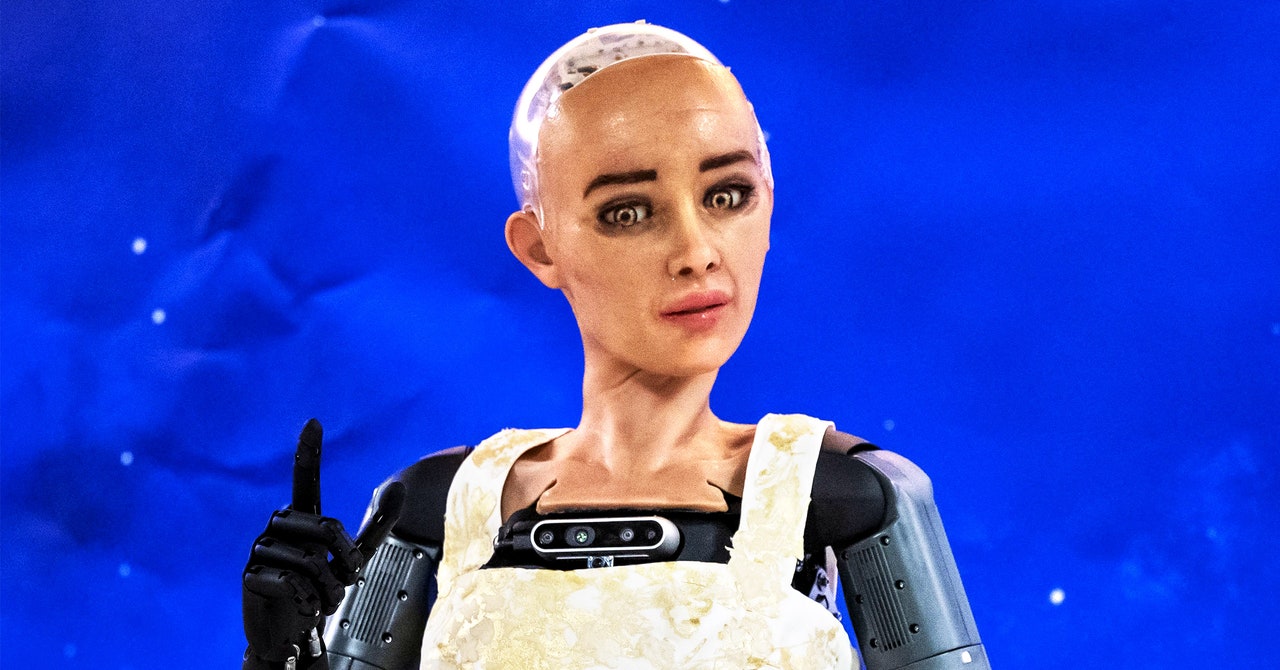Hanson and I talked about the idea of adding real intelligence to these suggestive machines. Ben Goertzel, a well-known AI researcher and the CEO of SingularityNET, is leading an effort to apply advances in machine learning to the software in Hanson’s robots that allows them to respond to human speech.
The AI behind Sophia can provide reasonable answers at times, but the technology isn’t nearly as advanced as a system like GPT-4, which powers the most advanced version of ChatGPT and costs more than $100 million to create. And of course, not even ChatGPT and other advanced AI programs can provide sensible answers to questions about the future of AI. It is perhaps best to think of them as supernaturally knowledgeable and gifted impersonators who, while capable of surprisingly sophisticated reasoning, are deeply flawed and have only limited “knowledge” of the world.
Sophia and company’s misleading “interviews” in Geneva remind us how anthropomorphizing AI systems can lead us astray. The history of AI is littered with examples of people extrapolating too much from new developments in the field.
In 1958, at the dawn of artificial intelligence, The New York Times wrote about one of the first machine learning systems, a crude artificial neural network developed for the US Navy by Frank Rosenblatt, a Cornell psychologist. “The Navy today unveiled the embryo of an electronic computer it expects will be able to walk, talk, see, write, reproduce itself and be aware of its existence,” the statement said. Time reported – a bold statement about a circuit that can learn to recognize patterns in 400 pixels.
If you look back at the coverage of IBM’s chess game Deep Blue, DeepMind’s champion Go player AlphaGo, and many of the leaps in deep learning over the past decade – which descend directly from Rosenblatt’s machine – you see much of the same: people every taking a step as if it were a sign of a deeper, more human intelligence.
That’s not to say that these projects – or even the creation of Sophia – weren’t remarkable achievements, or possibly steps toward more intelligent machines. But having a clear view of the capabilities of AI systems is important when it comes to measuring the progress of this powerful technology. To understand the advancement of AI, the least we can do is stop asking silly questions of animatronic puppets.

